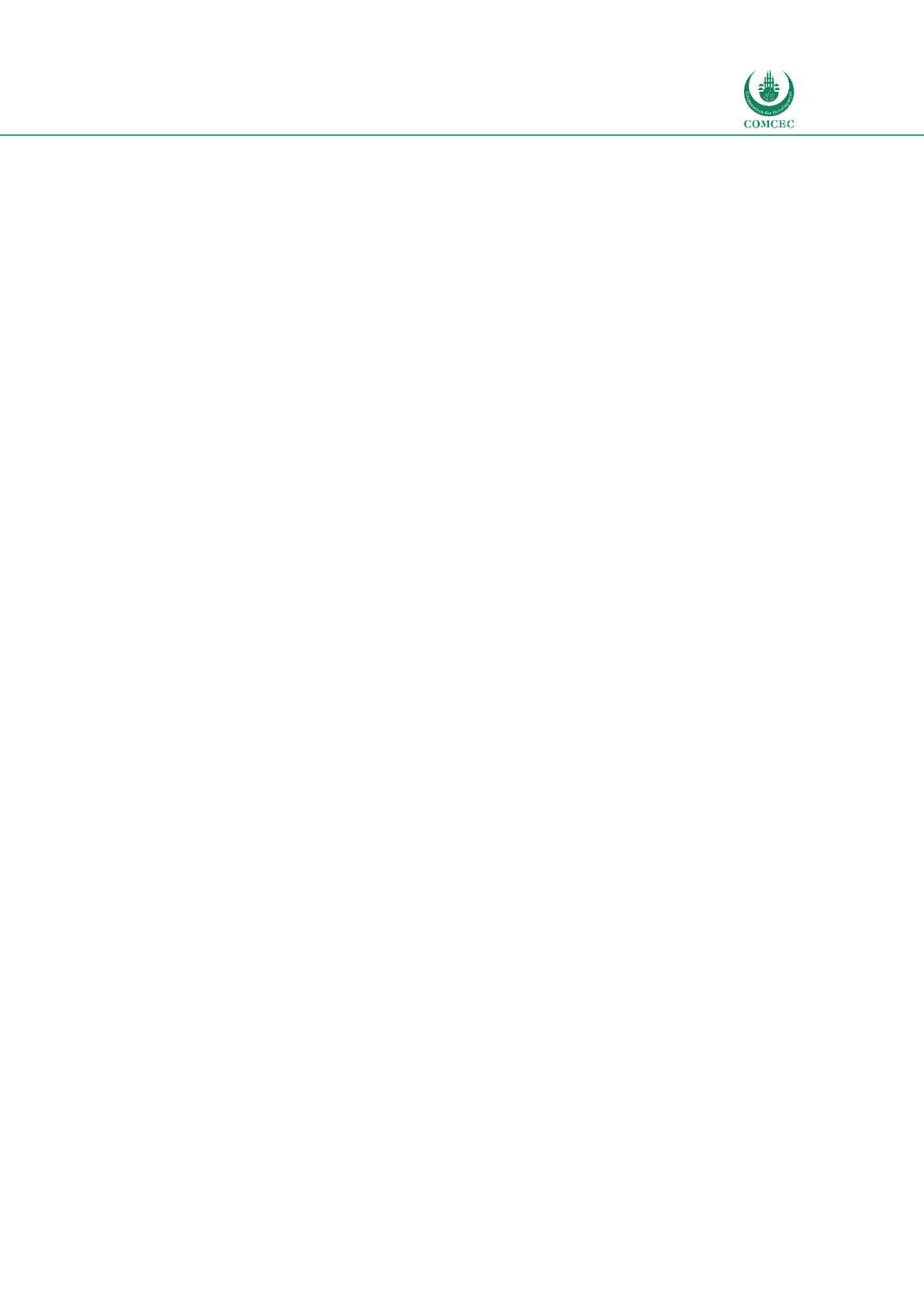

Enhancing Public Availability of Customs Information
In the Islamic Countries
93
The NBR stated that draft Customs Bill has a provision (Article 281) which requires Government
to publish all rules under this Act at least 30 days prior to its implementation except in
emergency situations.
Advance Rulings
An advance ruling system has been implemented in Bangladesh by the NBR as a part of its
Customs modernization program. The system has been in force since June 2
nd
, 2016, and is
currently available only for classification or origin of goods. The process of advance ruling has
also been elaborated in Section 275 of the draft Customs Bill 2018.
To implement the objective of the Rules, the NBR formed an Advance Ruling Unit which is
chaired by Member (Customs Policy) of the Board. First Secretary (Customs Policy) and Second
Secretary (Customs Policy) are the Members of the Advance Ruling Unit. As per Rule 4 of the
Customs Ruling (Advance) Rules 2016,the Chair of the Advance Ruling Unit can co-opt any
Customs official or any other person experienced in a relevant issue to perform the duties of the
Unit effectively. Following the implementation of the Advance Ruling system in June 2016, the
Unit issued 16 classification related advance rulings.
The advance ruling system is currently available in Bangladesh only for classification or origin
of goods. The advance ruling system enables traders in Bangladesh to apply for a ruling from the
NBR that specifies which classification code or H.S. Code will be applied for a specific good or
item prior to its export or import, or about its origin before importing. Such advance ruling
provides importers and exporters with certainty about how their goods will be treated by the
Customs authority nationwide, enabling them to incorporate specific tariff costs into their
business plans. For an advance ruling, one has to apply using a specific form with relevant
information and documents, and pay a fee. An advance ruling remains valid for 18 months from
the date of issuance of the ruling.
Bangladesh Customs publish written responses about advance ruling detailing information on
the applicants’ identity, the applied subject matter, the decision and explanatory note
supporting the decision, and time period of validity of the ruling, which could be useful for
traders other than the inquiring party. However, specific information about the application
might be kept confidential at the applicant’s request.
The responses are made available to public through the “Advance ruling Database” of the newly
launched customs website..
The NBR took initiatives to establish an Advance Ruling Program under its Customs
Modernization strategic action plan 2014-2017. It identified three activities for effective
implementation of the system; namely: 1) developing rules, procedures and policies to facilitate
implementation of the Advance Ruling program, 2) establishing an Advance Ruling unit within
Bangladesh Customs, and 3) operationalization of the Advance Ruling system. A USAID funded
BTFA program provided technical support to the NBR to develop indicative guidelines for
advance ruling following international best practices, and to draft the rules and procedures for
Statutory Regulatory Order (SRO) on Advance Ruling which was enacted in 2016. USAID also
supported the NBR in arranging sensitization workshops on the subject matter during the
development of the advance ruling system. Before putting the system in place the NBR also went
















